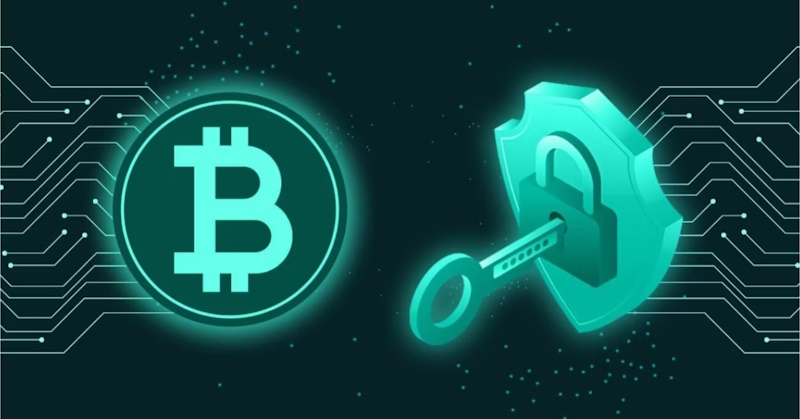The world of cryptocurrencies opens up vast opportunities for investors, but at the same time requires a responsible approach to security. Attackers use various schemes to steal digital assets, so anyone who buys or stores cryptocurrency must take care of protecting their funds. On the website wellcrypto.io you can find a lot of useful information about investing and exchanging cryptocurrencies, but what is really important is understanding how to secure your assets on a crypto exchange. Let's figure out how to choose a reliable platform and not fall victim to scammers.
How to Choose a Reliable Crypto Exchange
Choosing a platform for trading and storing cryptocurrency is a key step towards security. A reliable exchange reduces the risk of losing funds and minimizes the likelihood of hacking. However, many users focus on popularity or low commissions, forgetting about critical aspects.
Signs of a Secure Crypto Exchange
- Licenses and Regulation. Check if the exchange is registered and regulated by financial authorities. Licensed platforms are required to comply with strict rules, which reduces the likelihood of fraud.
- Reputation. Read user reviews, study the platform's history, analyze hacking incidents. If an exchange has repeatedly fallen victim to hackers, its security may leave much to be desired.
- Transparency. Open information about owners, offices and the team increases the level of trust. If the exchange does not have public data about its management, it is worth considering its reliability.
- Funds Insurance. Some exchanges insure client assets, which adds additional protection in case of force majeure.
- Protection Methods. Two-factor authentication, anti-phishing mechanisms and DDoS protection are mandatory elements. The more protection methods the exchange offers, the better.
It is important to remember that even the largest and most trusted exchanges are not immune to hacking. Therefore, users must additionally take care of their security.
Two-Factor Authentication: Account Protection
Even the most reliable exchange does not guarantee complete security if the user neglects account protection measures. One of the main mistakes is using weak passwords and the absence of two-factor authentication (2FA).
How to Properly Set Up 2FA
- Use apps (Google Authenticator, Authy) instead of SMS, as SIM cards can be hacked or replaced (SIM-swapping attack).
- Create a strong password consisting of letters, numbers and symbols. Simple passwords are easily guessed by attackers.
- Store backup codes in a safe place – they will help restore access in case of phone loss.
- Avoid logging in from public Wi-Fi networks. They can be intercepted by attackers, which creates a risk of data leakage.
Two-factor authentication is one of the simplest but most effective ways to protect your account. Without it, even a hacked password will not give hackers access to your account.
Where is it Safer to Store Cryptocurrency
Keeping all assets on an exchange is risky. The basic rule of crypto security is to withdraw funds to personal wallets. There are different types of crypto wallets, and each of them has its advantages and disadvantages.
Hot Wallets
Hot wallets are connected to the internet, which makes them convenient for fast transactions, but more vulnerable to hackers.
Pros:
- Convenience and accessibility
- Fast transfers
- Intuitive interface
Cons:
- Risk of hacking and data leakage
- Possibility of stealing funds in phishing attacks
- Dependence on wallet provider servers
Examples:
- Mobile and desktop wallets (Trust Wallet, Exodus)
- Online wallets (MetaMask, MyEtherWallet)
Cold Wallets
Cold wallets do not have a permanent connection to the internet, which makes them as secure as possible.
Pros:
- Reliable protection against hackers
- No risk of online hacking
- Ability to store assets long-term
Cons:
- Less convenient for frequent transactions
- Possibility of losing the device or keys
- High cost of some models
Examples:
- Hardware wallets (Ledger, Trezor)
- Paper wallets (physical copies of private keys)
The ideal option is to store small amounts in a hot wallet for daily transactions, and keep the bulk of assets in cold storage.
Main Risks of Storing Funds on an Exchange
Cryptocurrency exchanges can become targets of attacks, and sometimes even disappear with users' money. Main threats:
- Platform hacking and theft of funds. Even the largest exchanges have been attacked by hackers.
- Closure of the exchange without the possibility of withdrawing funds. History knows many examples when exchanges suddenly stopped working.
- Manipulation of user accounts. In some cases, platforms may freeze accounts without explanation.
To minimize risks, you should not store large sums on trading platforms. It is better to use the exchange only for transactions, and keep assets in personal wallets.
Invest Safely
Cryptocurrency security is the responsibility of every investor. Reliable exchange selection, 2FA use, withdrawal of funds to personal wallets and caution when making transactions will help protect assets from cyber threats. Vigilance and awareness are the best tools for preserving your digital investments.

